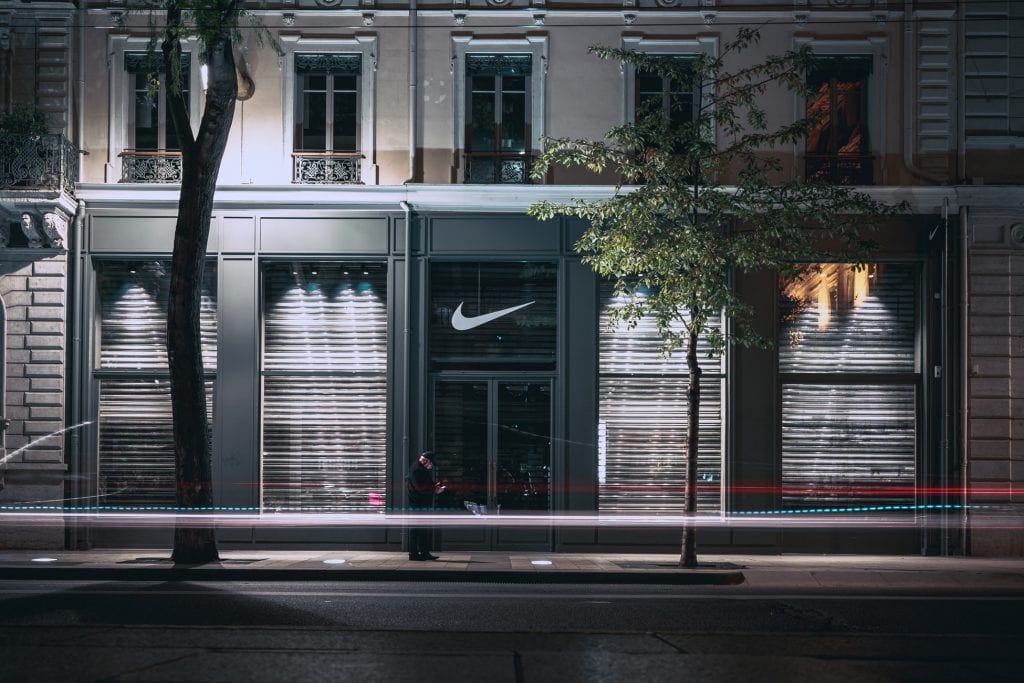Nike can legally ban third-parties from selling its footwear on unapproved online marketplaces. That is what the Amsterdam Court of Appeal stated in a noteworthy decision this summer, following from a multi-year back-and-forth between Nike European Operations Netherlands BV – an international arm of the Beaverton, Oregon-based sportswear titan – and Action Sport, an authorized Italian distributor of Nike’s sweeping supply of sportswear products.
The suit got its start more than three years ago when Nike terminated its distributor agreement with Action Sport. According to Nike, the Italian retailer was offering up and selling authentic Nike products – which it had ordered from Nike – on Amazon, an unauthorized third-party platform, and thereby, running afoul of Nike’s Selective Retailer Distribution Policy, which prohibits such sales even by authorized retailers.
On the heels of Nike pulling the plug on the parties’ deal, Action Sports filed suit, arguing that Nike had breached their contract because prohibiting it from selling the Nike products on Amazon’s marketplace violated European Union competition law, namely, Article 101(1) of the Treaty on the Functioning of the EU (“TFEU”).
In a decision in October 2017, the Amsterdam District Court shot down Action Sports’ arguments and sided with Nike, determining that the sportswear behemoth’s ban on authorized distributors selling its products on the online platforms of nonauthorized resellers does not clash with the TFEU. A recurring reference in the court’s decision? An advisory opinion in the then-still-pending case that cosmetics company Coty’s filed against its authorized distributor Parfümerie Akzente GmbH for selling products via third party platforms online, such as Amazon, in violation of Coty’s own distribution rules.
In that case, Advocate General Wahl indicated in a preliminary finding – that was subsequently echoed in a binding determination from the European Court of Justice – that a luxury goods company’s ban on sales by authorized retailers on third-party online marketplaces is consistent with the TFEU. (The Court of Justice held that such a ban is permissible in order to “preserve the luxury image of the goods” at issue).
On Appeal
Fast forward to this summer and in deciding the appeal lodged by Action Sport, the Amsterdam Court of Appeal held that such a mandate does not only apply to luxury purveyors. In its July ruling, the appeals court confirmed the lower court’s decision, holding that Nike’s selective distribution agreement is, in fact, in line with EU competition law, and thus, valid in the case at hand. As such, Action Sports’ sale of Nike products on Amazon amounted to a breach of the parties’ agreement, and as a result, it was fair game for Nike to terminate it.
“With its decision in the Nike case, the Amsterdam Court of Appeal has made a strong point that not only luxury brand owners may lawfully impose and enforce platform bans vis-à-vis its authorized resellers in selective distribution agreements in the European Union, according to Reed Smith LLP’s Michaela Westrup, Tilman Siebert, and Corinna Kammerer, who say that the case is especially notable given the mixed responses that have followed from the earlier Coty decision.
“The decision is of particular relevance as third-party platform bans imposed by brand manufacturers in the context of selective distribution terms have been the subject of heavy controversy in the European Union in recent years,” including about “whether the legality of platform bans should be reserved to luxury products under EU competition rules.”
They note that national competition authorities in the EU have taken different approaches, with the French Competition Authority, for example, taking “a more liberal view” of the rule, and holding that a garden equipment manufacturer can ban the unauthorized sale of its goods, despite the fact that they fall outside of the realm of luxury goods. That decision was confirmed by the Paris Court of Appeal in October 2018.
At the same time, Westrup, Siebert, and Kammerer point to the “more restrictive approach” adopted by the German Federal Cartel Office, which has “warned companies that the scope of the Coty judgment should be limited to luxury products only, and that it should not be perceived to grant a blanket authorization for brand owners outside luxury segment to prevent sales on third party sites.”
Given the potential widening of the scope of the Coty decision, Westrup, Siebert, and Kammerer encourage brands to approach the use and enforcement of selective distribution agreements on “an individual case-by-case assessment, taking the distribution terms, the characteristics of the products concerned and the brand image into account.”













